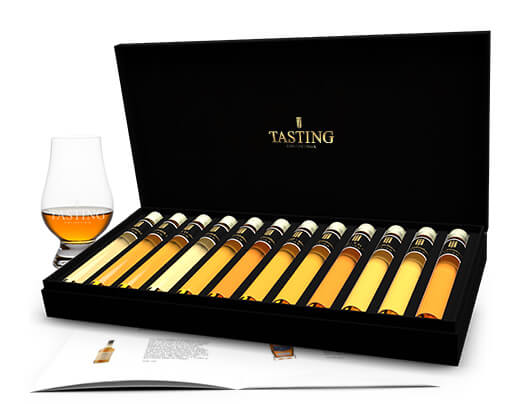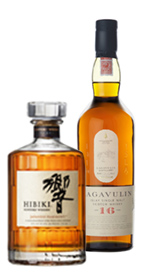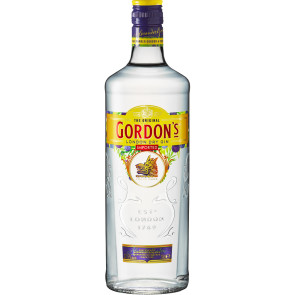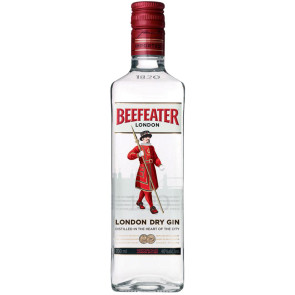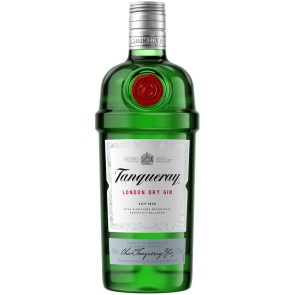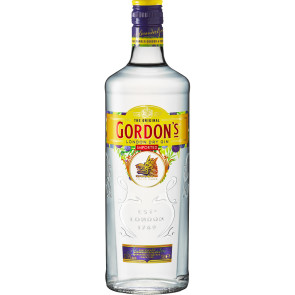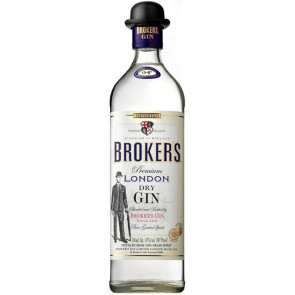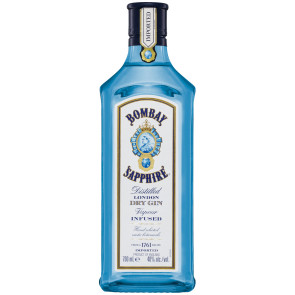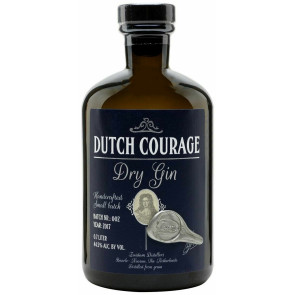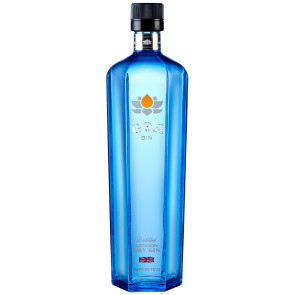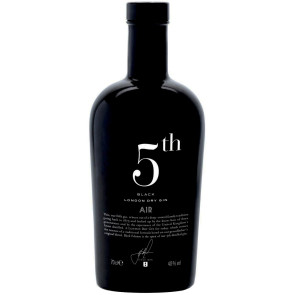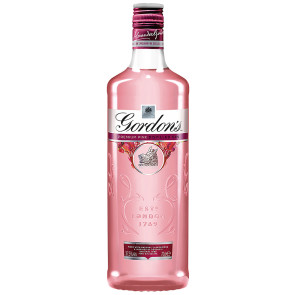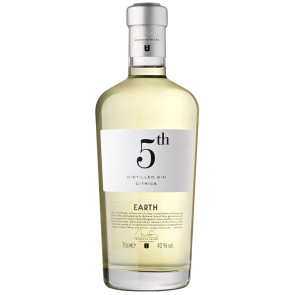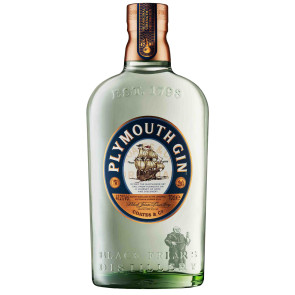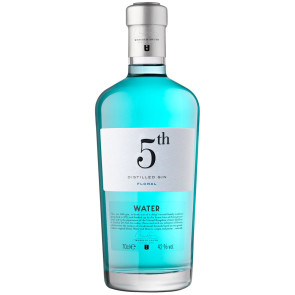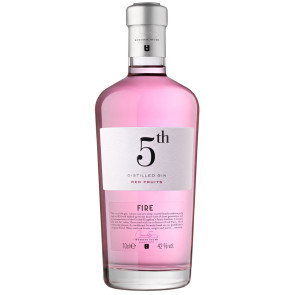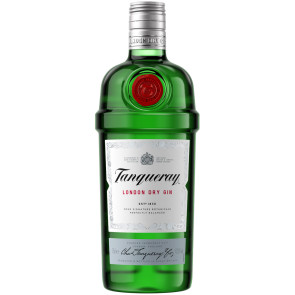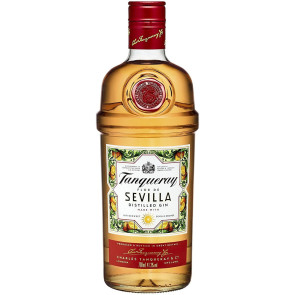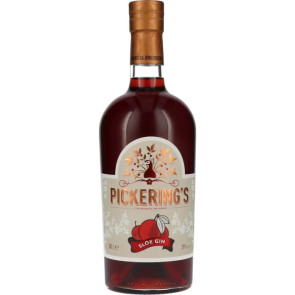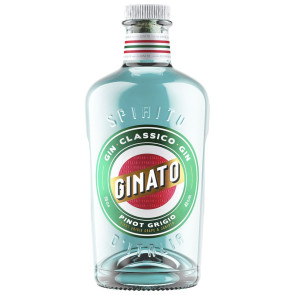Gin
Order your favorite Gin! |
-
Gordon's - London Dry Gin (0.7 ℓ)
€ 12.95 -
Beefeater - London Dry Gin (0.7 ℓ)
€ 16.50 -
Tanqueray (0.7 ℓ)
€ 17.50 -
Gordon's - London Dry Gin (1 ℓ)
€ 18.50 -
Broker's - London Dry Gin (0.7 ℓ)
€ 18.95 -
Bombay - Sapphire (0.7 ℓ)
€ 19.95 -
Filliers - Classic Gin 28 Botanicals (0.5 ℓ)
€ 20.95 -
Zuidam - Dutch Courage (0.7 ℓ)
€ 22.51 -
Goa - London Dry Gin (0.7 ℓ)
€ 22.95 -
5th Gin - Black Air (0.7 ℓ)
€ 23.95 -
Gordon's - Premium Pink (1 ℓ)
€ 24.50 -
5th Gin Earth (0.7 ℓ)
€ 24.50 -
Plymouth Gin (0.7 ℓ)
€ 24.50 -
5th Gin Water (0.7 ℓ)
€ 24.50 -
5th Gin Fire (0.7 ℓ)
€ 24.50 -
Tanqueray (1 ℓ)
€ 24.95 -
Bombay - Citron Presse (0.7 ℓ)
€ 25.49 -
Tanqueray - Sevilla (0.7 ℓ)
€ 25.49 -
Pickering's - Sloe Gin (0.5 ℓ)
€ 25.95 -
Ginato - Pinot Grigio (0.7 ℓ)
€ 26.50
Gin
Gin is made from a distillate of fermented cereal batter to which juniper berries or blackthorns are added during the distillation process. The predominant taste of juniper berries is regulated by law. Furthermore, spices such as coriander seeds, angel root, dried lemon, lime or orange peel and iris root are used as additives. The diversity of herbs and spices in Gin is increasing. The EU has a minimum alcohol content of 37.5%, which is 40% in the United States. The more alcohol the drink contains, the stronger the taste becomes. Ordinary Gin is not drunk pure because of its dry taste. Gin with Blackthorn is less dry.
Types of Gin
Gin can be divided into five different kinds:
London Dry Gin or Plymouth Dry Gin
Although the name suggests otherwise, this Gin doesn't have to come out of London. It's about the way this Gin is made. It is produced in the original way, in which it is distilled once at the same time as all ingredients are added. After this process only water is added.
Distilled Gin
Distilled Gin goes through the same process as London Dry Gin or Plymouth Dry Gin, but with Distilled Gin additional ingredients are added at the end. We know this kind like the original 'Premium Gins', in which the Gins are once again distilled with, for example, oranges or lime or spices. It is also possible to infuse with rose petals or cucumber, for example.
Compound Gin
For compound Gin, the label only states that it is a Gin. Frequently used as a private label of a supermarket or liquor store. Flavours and/or extracts have been added to these Gins without distilling them. This method of production is cheaper.
Old Tom Gin
Today, this kind of Gin is produced a little more because of the comeback of Gin Tonic and cocktails with Gin. Old Tom Gin is much sweeter than the classic Gin, and is therefore ideally suited for cocktails.
Ultra Premium Gin
Ultra Premium Gin is a purer Gin than the other four types. Ultra Premium Gin has been distilled several times, making it more pure than other types of Gin.
Gin geography
Gin does not come from a particular geographical area. The first Gin strains came from London; nowadays Gin is produced all over the world. Spain is large in Gin production, for example, but Gin is also produced in the United States, Scotland, Scandinavia and even the Netherlands.
Gin brands
Gin has many well-known brands, which of course can also be obtained from Tasting Collection, below a selection of Gins that are offered by Tasting Collection.
Hendrick's Gin
"A most unusual Gin" according to Hendrick's. Hendrick's Gin is a brand name of William Grant & Sons in Girvan, Scotland. This Gin was first introduced in 1999. In addition to the traditional infusion of juniper berries, Hendrick's uses Bulgarian rose petals and cucumber. Hendrick's Gin is bottled in a characteristic dark brown Apothecarian bottle.
Bombay Gin
One of the most famous and subtly scented Gins in the world. Bombay Sapphire is a light London Dry Gin that was put back on the map at the end of the 1980s, from London. His stylish look and image were able to boost the dusty image of Gin.
Beefeater Gin
The name Beefeater refers to the ceremonial guards of the Tower of London. The Beefeater Gin distillery is one of nine distilleries thats currently still operating in London.
Tanqueray
Tanqueray Gin has been made since 1830 from the highest quality spirit and best herbs, picked at the height of their freshness, to give this Gin its clearly elevated taste. The Tanqueray Gin is the only Gin in the Hall World Spirits of Fame.
Filliers Dry Gin
Originally founded in 1928 by the Belgian distillers Filliers, Filliers Dry Gin uses 28 botanicals in addition to juniper berries. The Gin is made in small batches in copper pots.
Sylvius
Named after Franciscus Dele Boë Sylvius which was not the first person to distil juniper berries, but he was the first to register this distillate and call it "Genevre". This happened in 1650. Sylvius Gin is produced by the Dutch distillery Onder De Boompjes.
The difference between Gin and Genever
Simply the agreement between Gin and Genever is the juniper berry. The difference lies in the type of alcohol. Gin must be made with neutral alcohol, Genever with grain alcohol. Neutral alcohol is distilled up to 96%, as with Vodka. Genever also consists of malt wine, which has a strong cereal flavour, comparable to Whisky that has not yet aged. This gives Genever a more difficult character and therefore makes it less suitable as a mix drink. Genever is usually drunk pure, both on room temperature and chilled. Gin is flavoured during distillation with lots of herbs, this makes the taste so specific, and is therefore very suitable for mixing. The difference between Genever and Gin is therefore very clear, as much in taste as in use.

